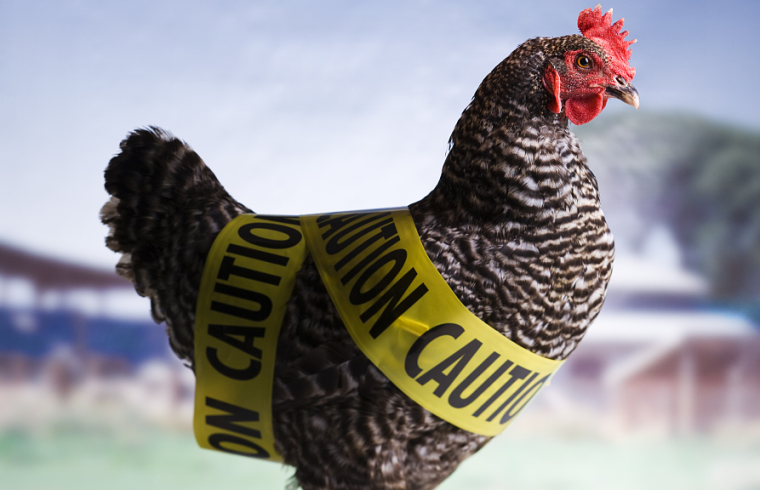While humans are still struggling with the coronavirus epidemic, birds are suffering with their own sickness.
An avian influenza epidemic has killed over 24 million poultry birds, according to the USDA Animal and Plant Health Inspection Service (APHIS). Chickens, ducks, turkeys, and other poultry, both commercial and domestic, fall under this category.
As a result, the government has classified avian flu as extremely pathogenic.
The avian flu, according to the Centers for Disease Control and Prevention (CDC), is transferred by saliva, nasal secretions, and feces, similar to a respiratory infection.
Not all incidences of avian flu result in the animal’s death. However, as the statistics demonstrate, a large proportion of people do.
The CDC also points out that while human infection with avian flu is uncommon, it is conceivable. So far, four verified cases of people catching avian flu from birds have been reported. However, no person has ever transmitted the avian flu to another human.
The spread of avian influenza is a major concern for American zoos, among others. Many people are taking precautions to protect the birds under their care.
The Columbus Zoo and Aquarium in Ohio, for example, is shutting several of its bird exhibits as part of its conservation efforts.
Many zoos are also taking precautions to prevent their animals from coming into touch with wild birds that may already be infected with the virus. Some have even moved their bird populations to holding facilities where they have better control. This is happening, for example, at the Brookfield Zoo in Illinois.
At this time, the humans caring for these birds are also wearing personal protective equipment to avoid cross-species transmission of not just bird flu but also other ailments.












